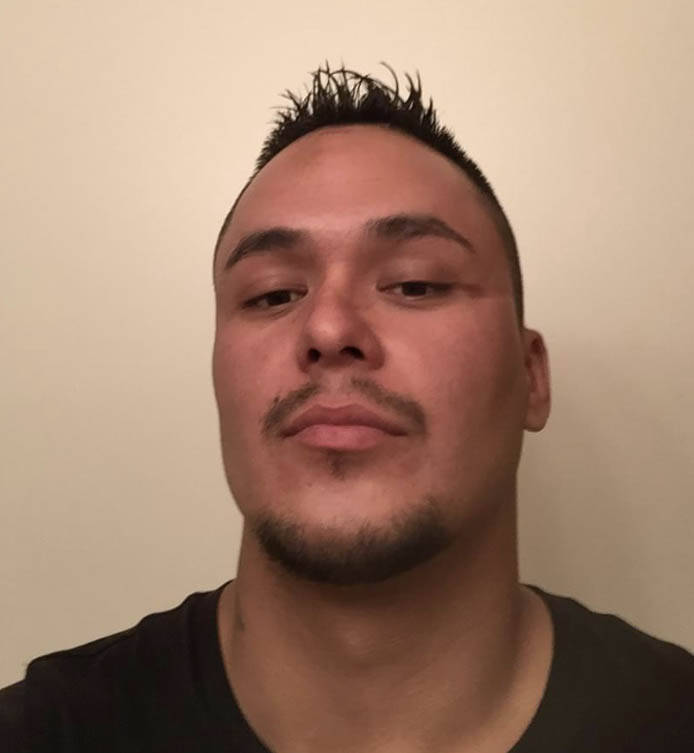Group inquest to probe deaths of five men in WPS custody
Advertisement
Read this article for free:
or
Already have an account? Log in here »
To continue reading, please subscribe:
Monthly Digital Subscription
$0 for the first 4 weeks*
- Enjoy unlimited reading on winnipegfreepress.com
- Read the E-Edition, our digital replica newspaper
- Access News Break, our award-winning app
- Play interactive puzzles
*No charge for 4 weeks then price increases to the regular rate of $19.00 plus GST every four weeks. Offer available to new and qualified returning subscribers only. Cancel any time.
Monthly Digital Subscription
$4.75/week*
- Enjoy unlimited reading on winnipegfreepress.com
- Read the E-Edition, our digital replica newspaper
- Access News Break, our award-winning app
- Play interactive puzzles
*Billed as $19 plus GST every four weeks. Cancel any time.
To continue reading, please subscribe:
Add Free Press access to your Brandon Sun subscription for only an additional
$1 for the first 4 weeks*
*Your next subscription payment will increase by $1.00 and you will be charged $16.99 plus GST for four weeks. After four weeks, your payment will increase to $23.99 plus GST every four weeks.
Read unlimited articles for free today:
or
Already have an account? Log in here »
Hey there, time traveller!
This article was published 06/11/2023 (748 days ago), so information in it may no longer be current.
A long-awaited inquest into the deaths of five men following altercations with Winnipeg police officers begins Tuesday, marking the start of a group inquest of unprecedented size over the last two decades in Manitoba.
After a more than four-year delay, the inquest will examine the deaths of Patrick Gagnon, 41; Michael Bagot, 40; Randy Cochrane, 30; Matthew Fosseneuve, 34; and Sean Thompson, 30.
The spate of deaths took place over a roughly 12-month period beginning in July 2018. Each man was restrained face down by Winnipeg police officers, according to Independent Investigation Unit of Manitoba reports into the men’s deaths. Several had their legs bound with a device known as a RIPP Hobble. An officer struck Gagnon with his knee several times. Fosseneuve was also Tasered.
PHIL HOSSACK / WINNIPEG FREE PRESS FILES
Family members of Sean Thompson, who died in police custody, protest outside of Winnipeg Police headquarters in 2019.
The IIU is Manitoba’s police watchdog.
Each man had appeared to be experiencing some form of drug-related or other medical crisis and police officers were responding to reports of their bizarre or aggressive behaviour.
The IIU determined that police officers did not cause or contribute to any of the five men’s deaths.
Of the five men whose identities are known, Cochrane was from Fisher River Cree Nation in Treaty 5 territory; Thompson was from Little Saskatchewan First Nation in Treaty 2 territory; and Bagot was Guyanese.
Bronwyn Dobchuk-Land, an associate professor in the department of criminal justice at the University of Winnipeg, pointed to the wider context behind the upcoming inquest.
“For young Indigenous men, regardless of if they’re dealing with mental-health crises, the police scrutiny is, by all accounts, constant and unbearable,” she told the Free Press, noting Indigenous men are constructed by police “as risky, instead of at-risk” of experiencing violence.
And, she added, there’s no indication that deaths in police custody in Winnipeg are “slowing or stopping.”
Several thorny issues are set to loom large over the scheduled 17-day inquest, from the concept of “excited delirium,” which has been rejected by all major U.S. medical associations; to police use of force and the safety of police restraint techniques; to the adequacy of mental-health and addictions resources in Winnipeg; and the interactions of Indigenous people with police.
Prior inquests into deaths involving police in Manitoba have tended to focus on the testimony of involved police officers, as well as law-enforcement experts, with few non-police experts, according to a recent Free Press investigation. Inquests have also be subject to extensive delays.

Randy Cochrane died in police custody July 14, 2019
Also looming over the five-person inquest is the recent death of Elias Whitehead, in circumstances that bear some similarity. Thirty-seven-year-old Whitehead died Oct. 15 after being restrained face-down by Winnipeg police. Officers were responding to reports that Whitehead was running into traffic and acting erratically, according to a police press release.
A one-minute video taken by a witness shows two police officers striking Whitehead while he is being restrained. Winnipeg Police Service Chief Danny Smyth wrote in a Substack post several days after the incident that he believes the officers involved “were well trained, and will account for the actions they took, including the level of force used to control the situation.”
A brief IIU news release said Whitehead began having trouble breathing during his arrest.
Whitehead, who was from Webequie First Nation in Ontario, was in Winnipeg temporarily, taking a heavy-equipment operator course. He lived in Tataskweyak Cree Nation in Northern Manitoba with his partner.
At a news conference last week, Whitehead’s partner, Jody Beardy, called on any additional witnesses to come forward, “so we can get justice for Elias — because he deserves that.”
“The police are supposed to keep people safe. They’re supposed to help people. This wasn’t the case for Elias and (for) many other people,” she said. “Where is the humanity for Indigenous people?”
Manitoba Keewatinowi Okimakanak Grand Chief Garrison Settee spoke to the long history of these issues.
“The Aboriginal Justice Inquiry provided 296 recommendations. Only 30 of those have been implemented,” he said at the press conference, referring to the sweeping inquiry, held more than 30 years ago, into the treatment of Indigenous people in Manitoba by courts and police.
“There’s something deeply wrong with a system that allows our people to be victims of police brutality, and also fatality,” he added.
Inquests in Manitoba are led by a provincial court judge and are meant to examine the circumstances of particular deaths, as well as to make recommendations to prevent similar deaths in the future. Inquests are, however, forbidden from laying blame.
Matthew Richards Fosseneuve died in police custody July 28, 2018.
And while inquests are public — open for anyone to watch — dates of upcoming inquests in Manitoba are not posted online, as is done in several other provinces.
Aimee Fortier, a court spokesperson, told the Free Press the inquest for the five men is scheduled for: Nov. 7-10, 14-16, 20, 28 and 29; Feb. 13-15, 26 and 27; March 18; and April 3. It will be held at the Law Courts Building in Winnipeg.
Dobchuk-Land, the associate professor, questioned how the family members of the five men will be taken care of and supported during the proceedings.
“It’s going to be so painful for the families,” she said. “There’s such a desperation to be heard by systems, which have not given (families) an opportunity to be heard. And there’s a desperation to know details from systems that have kept details secret.”
While the province technically has a funding stream to assist families in paying for legal counsel, between 2017 and mid-2023, half of all requests to it were denied. A reference document intended for Manitoba’s Crown attorneys, obtained through an access request, acknowledges that “most families do not have their own counsel” at inquests.
It appears just one family is set to be represented by counsel at the upcoming inquest.
marsha.mcleod@freepress.mb.ca

Marsha McLeod
Investigative reporter
Signal
Marsha is an investigative reporter. She joined the Free Press in 2023.
Our newsroom depends on a growing audience of readers to power our journalism. If you are not a paid reader, please consider becoming a subscriber.
Our newsroom depends on its audience of readers to power our journalism. Thank you for your support.











